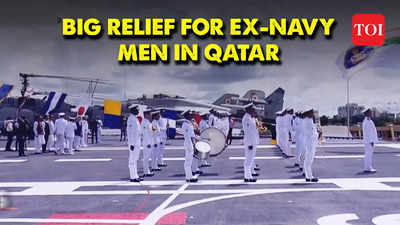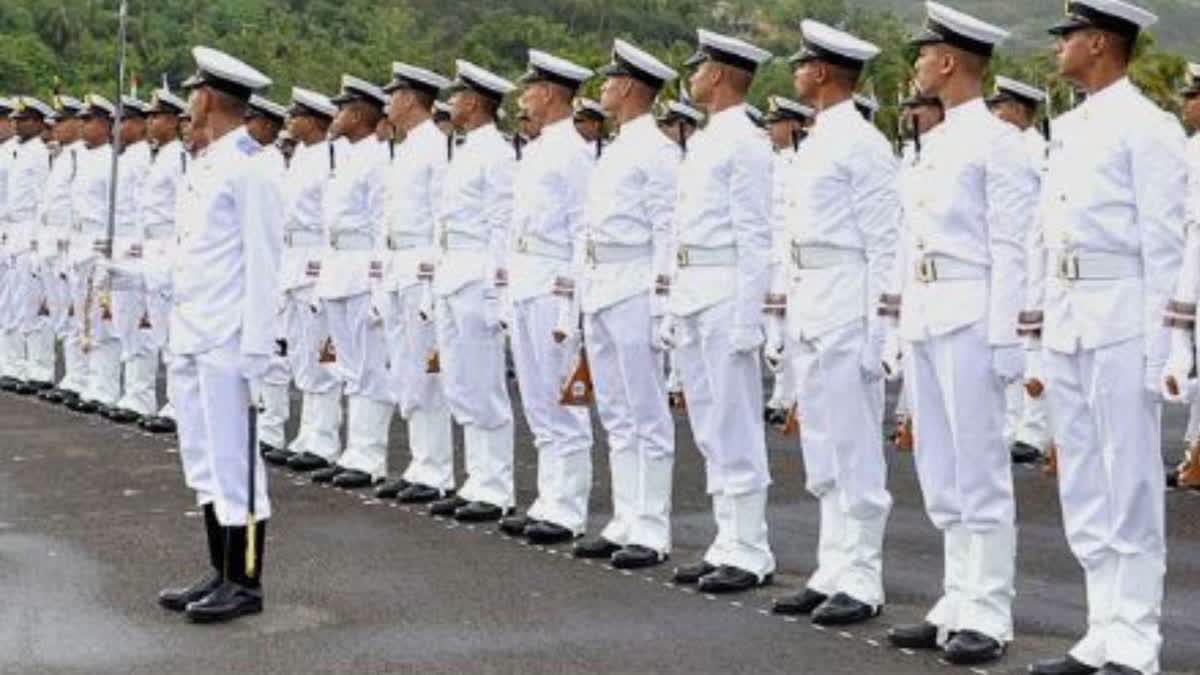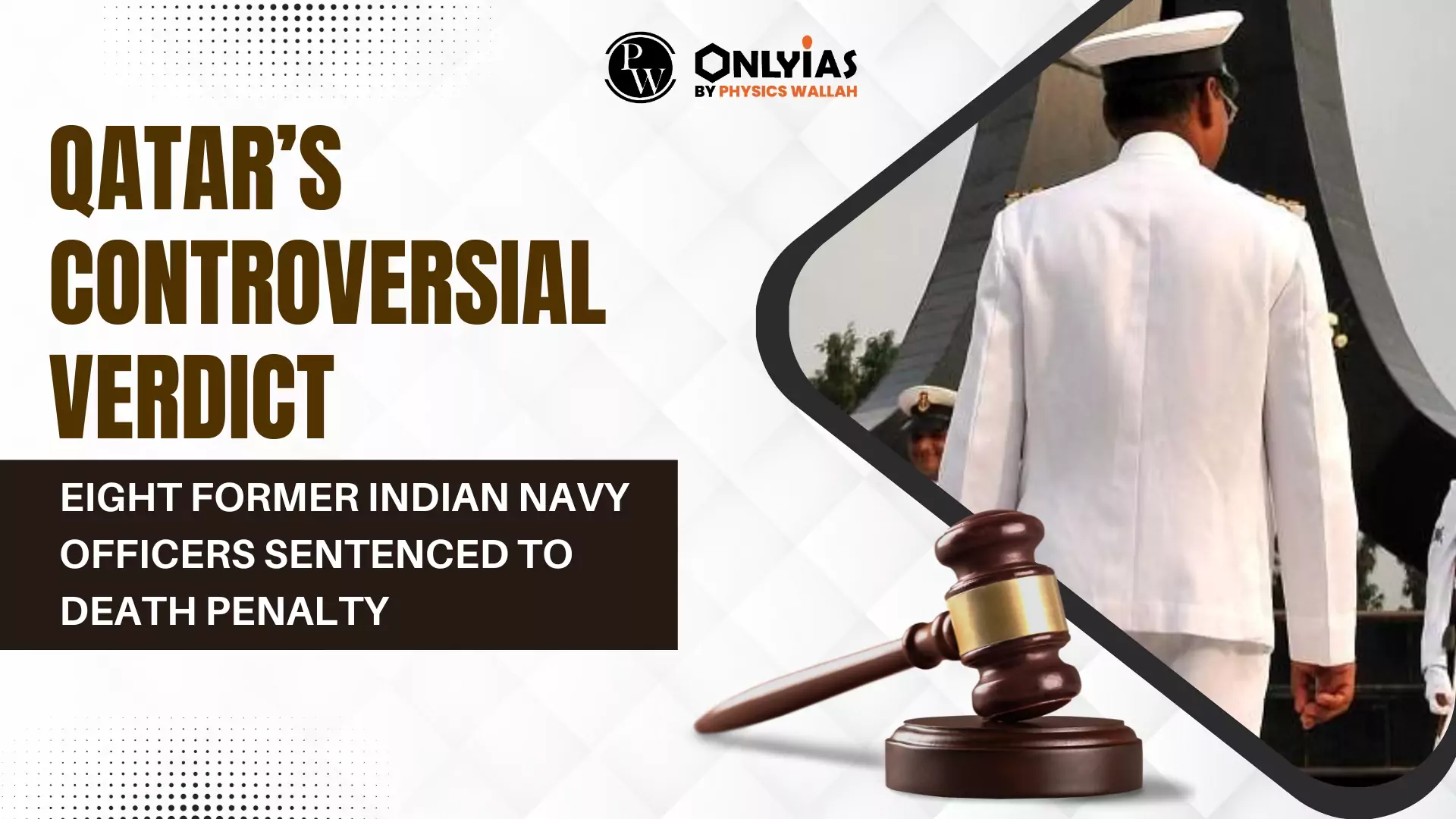Introduction to the case of Indian Navy officers facing death penalty in Qatar
The recent case of Indian Navy officers facing the death penalty in Qatar has captured global attention, sparking intense debates about justice and human rights. The men, who were arrested under murky circumstances, now find themselves on death row in a foreign land. As details unfold, questions arise not only about the legal proceedings but also about the implications for diplomatic relations between India and Qatar. How did this shocking situation come to pass? And what does it mean for those involved as well as broader discussions surrounding capital punishment? Join us as we delve into this complex story that raises critical concerns about fairness and justice on an international scale.
Qatar death penalty Indian navy officers

The case of Indian Navy officers Qatar death penalty Indian navy officers facing the death penalty in Qatar has drawn significant attention. These individuals were arrested under allegations that have sparked controversy and debate.
Their convictions have raised questions about legal processes in foreign jurisdictions. The severity of their sentences contrasts sharply with India’s justice system, where the death penalty is rarely enforced.
Public sentiment in India is polarized. Many advocate for a fair trial and call for intervention from the government. International human rights organizations are also voicing concerns over due process and transparency during these proceedings.
As discussions unfold, diplomatic ties between India and Qatar hang in the balance. Both countries must navigate this sensitive issue while addressing domestic and international pressures surrounding capital punishment practices.
Controversies surrounding the death penalty in Qatar
The death penalty in Qatar has sparked significant controversy, particularly regarding its application and transparency. Critics argue that the legal procedures surrounding capital punishment lack clarity and fairness. Many cases do not receive adequate representation, raising concerns about due process.
Human rights organizations have voiced alarm over the potential for wrongful convictions. The opaque nature of court proceedings often leaves families and advocates in the dark about crucial developments.
Moreover, cultural and religious factors complicate discussions on abolishing or reforming the death penalty. While some view it as a necessary deterrent to crime, others advocate for rehabilitation instead of retribution.
International scrutiny also plays a role. Countries with strong human rights policies question Qatar’s adherence to global standards, putting pressure on its government to reconsider these laws amidst growing calls from activists worldwide.
Comparison with death penalty laws in India and other countries
The death penalty is a contentious issue worldwide, with each country adopting its stance based on cultural, legal, and moral grounds. In India, capital punishment exists but is rarely enforced. Cases are subjected to rigorous scrutiny and must pass through multiple levels of appeal.
In contrast, Qatar’s judicial system appears less lenient. The recent sentencing of Indian Navy officers reflects this harsher application of the law. Critics argue that such sentences often lack transparency and fairness.
Looking globally, countries like Canada and New Zealand have abolished the death penalty entirely. Their focus shifts towards rehabilitation rather than retribution. Meanwhile, nations like China carry out executions at an alarming rate without much public discourse.
This divergence in practices raises Qatar death penalty Indian navy officers important questions about justice systems and human rights across borders.
Efforts made by the Indian government to commute the sentence
The Indian government has taken significant steps to address the dire situation faced by the Indian Navy officers on death row in Qatar. High-level diplomatic discussions have been initiated between India and Qatari officials. These talks aim to seek clemency for the convicted officers.
Legal teams have also been mobilized to explore every possible avenue for appeal. This includes filing petitions that highlight potential flaws in the original trial process, emphasizing human rights concerns.
Public advocacy plays a crucial role as well, with numerous organizations and citizens urging authorities to intervene. The media has spotlighted these efforts, putting pressure on both nations to reconsider the severity of the punishment.
Efforts extend beyond diplomacy; they involve outreach programs aimed at fostering understanding between cultures and legal systems involved in this complex case.
Impact on diplomatic relations between India and Qatar
The situation involving the Indian Navy officers sentenced to death in Qatar has strained diplomatic ties between the two nations. India relies on strong relationships in the Gulf region for economic and political stability.
This case adds complexity to ongoing discussions about trade, security cooperation, and cultural exchange. Diplomatic channels are undoubtedly active as both governments navigate this sensitive issue.
India’s calls for clemency reflect its commitment to protecting its citizens abroad while trying not to offend Qatar’s judicial sovereignty. The potential impact of public sentiment on both sides cannot be underestimated either.
Media coverage of human rights concerns and fair trial demands is amplifying pressures from various stakeholders, including international organizations. As these dynamics unfold, they may reshape how India engages with Qatar moving forward, influencing foreign policy strategies significantly.
Possible outcomes and next steps for the convicted officers
The future for the Indian Navy officers facing death sentences in Qatar remains uncertain. Several potential outcomes could unfold as diplomatic efforts continue.
One possibility is a successful appeal against their convictions. Legal experts believe there may be grounds to challenge the evidence presented during the trial. If this happens, it could lead to a reduction in their sentences or even an acquittal.
Another scenario involves negotiations between India and Qatar. The Indian government might push for clemency, seeking a commutation of the death penalty to life imprisonment. This path would require sensitive discussions at high levels of diplomacy.
Public pressure from human rights Qatar death penalty Indian navy officers organizations plays a crucial role too. Continued international scrutiny might influence Qatari authorities’ decisions regarding these cases.
Monitoring developments closely will be essential as various stakeholders advocate for justice on behalf of the convicted officers.
Conclusion: Should the death penalty be abolished in Qatar?

The discussion around the death penalty in Qatar raises complex ethical questions. Advocates for abolition argue that capital punishment is inherently flawed and disproportionately affects marginalized groups.
Many believe it lacks a deterrent effect on crime. The focus should shift toward rehabilitation rather than retribution. Life sentences can serve justice without resorting to irreversible measures.
Qatar’s legal system is often scrutinized for transparency and fairness, particularly concerning foreign nationals. Ensuring due process becomes essential in maintaining international credibility.
Global trends show an increasing movement towards abolishing the death penalty, with numerous countries leading by example. This shift highlights a growing recognition of human rights as paramount.
The case of Indian Navy officers underscores the need for reform within Qatar’s judicial framework. Engaging in dialogue about these issues could pave the way for more humane practices moving forward.
Introduction to the Case: Indian Navy Officers on Death Row in Qatar
The case of Indian Navy officers facing the death penalty in Qatar has captured global attention. Two officers were arrested under serious allegations that have led to a controversial legal battle.
Their arrest raises complex questions about justice and international law. It also highlights the precarious position of foreign nationals caught in legal troubles abroad.
Details remain murky, with reports indicating espionage and drug trafficking as possible charges. The gravity of these accusations underscores the potential consequences they face.
This situation has not only drawn media scrutiny but also sparked conversations surrounding human rights and due process. As families await clarity, tensions run high on both sides.
The plight of these officers is a stark reminder of how quickly circumstances can change, plunging individuals into dire situations far from home.
Background Information: Why Were They Arrested and Sentenced to Death?
The case of the Indian Navy officers in Qatar stems from a complex situation involving allegations of drug trafficking. The officers were reportedly detained after being implicated in an operation that involved significant amounts of narcotics.
Authorities claimed that the seized drugs were intended for distribution within Qatar. This led to serious accusations, resulting in their arrest and subsequent trial under Qatari law.
The legal proceedings raised numerous questions about due process and transparency. Human rights advocates have expressed concerns regarding the fairness of the trial and whether adequate representation was provided during the legal battle.
As this high-profile case unfolded, it not only garnered media attention but also ignited discussions on international norms related to justice and human rights. The severity of the death penalty further complicated matters, drawing scrutiny from multiple stakeholders globally.
Details of the Case and Legal Proceedings
The case of the Indian Navy officers in Qatar centers around serious allegations involving drug trafficking. Arrested in 2020, they were accused of attempting to smuggle a substantial quantity of narcotics.
Legal proceedings unfolded rapidly after their arrest. The trial raised numerous questions about due process and fair representation. Many observers noted potential irregularities during the legal hearings.
Despite mounting evidence that called into question the validity of the charges, Qatari courts delivered a swift verdict. The harsh sentence shocked many, igniting debates over judicial fairness in foreign jurisdictions.
Indian officials have consistently maintained that these officers acted within their lawful duties as members of the Navy. Diplomatic channels have since been engaged to seek clarity on legal standards applied during this case.
International Outcry and Diplomatic Efforts
The sentencing of the Indian Navy officers in Qatar has sparked significant international concern. Human rights organizations and advocates have voiced their disapproval, calling for a fair trial and transparency throughout the legal proceedings.
Countries allied with India have also stepped in, expressing solidarity. Diplomatic channels are buzzing as leaders seek to intervene on behalf of the convicted officers.
In response, India’s government is actively engaging with Qatari officials. High-level discussions aim to highlight humanitarian aspects while seeking avenues for appeal or commutation of sentences.
The United Nations has been monitoring the situation closely. Activists urge global attention towards the implications of such harsh penalties and their alignment with human rights standards.
As international voices grow louder, it remains essential to uphold justice without compromising diplomatic ties between the nations involved.
Human Rights Concerns and Calls for Fair Trial
The case of the Indian Navy officers Qatar death penalty Indian navy officers facing the death penalty in Qatar has ignited a wave of human rights concerns. Activists and legal experts argue that due process may not have been upheld during their trial.
Many highlight that transparency is crucial in such serious cases. Calls for fair trials echo within international communities, demanding independent reviews of the evidence presented against these officers.
Reports suggest that access to legal representation was inadequate at critical stages. This raises alarms about whether justice can truly be served under those conditions.
Human rights organizations are closely monitoring this situation, urging Qatari authorities to adhere to international standards. The potential implications on global perceptions of Qatar’s judicial practices cannot be ignored as pressure mounts for accountability and fairness.
Impact on India-Qatar Relations
The case of the Indian Navy officers facing the death penalty in Qatar has cast a shadow over diplomatic ties between the two nations. Both countries have historically maintained strong relations, characterized by mutual respect and cooperation.
However, this incident has raised tensions, leading to public discourse on legal processes and human rights standards in Qatar. The Indian government’s request for clemency reflects its commitment to protecting its citizens abroad while navigating complex international laws.
Furthermore, increased media attention amplifies concerns among Indians regarding their treatment overseas. This situation places pressure on both governments to resolve matters amicably without straining bilateral trade and cultural exchanges.
In light of these developments, maintaining open channels for dialogue becomes crucial. It allows both nations to address grievances while ensuring that justice is served fairly. The outcome could either reinforce or challenge existing diplomatic frameworks between India and Qatar.
Qatar death penalty Indian navy officers

The case of the Indian Navy officers sentenced to death in Qatar has sparked significant international attention. Arrested under serious allegations, their trial raised eyebrows regarding fairness and transparency.
Many argue that the legal proceedings lacked adequate representation and access to a fair trial. This has led to widespread concern among human rights advocates who believe due process was not upheld.
Diplomatic relations between India and Qatar are now under strain as both nations navigate this complex situation. The families of the convicted officers remain hopeful for a resolution, while various organizations rally support for their cause.
Calls for intervention from the Indian government have increased, emphasizing a need for dialogue with Qatari authorities. As tensions rise, different factions within society react passionately about justice and human rights implications tied to these sentences.
Conclusion: The Need for Justice and Fair Treatment in Global Affairs
The case of the Indian Navy officers facing the death penalty in Qatar highlights a significant intersection of law, human rights, and international relations. The complexities involved are not just legal; they are deeply rooted in humanitarian concerns.
As calls for justice and fair treatment grow louder, it is essential to reflect on the broader implications. These developments could set precedents affecting future diplomatic interactions between nations. The world watches closely as efforts continue to address both the legalities of this situation and the ethical dimensions surrounding capital punishment.
Ensuring that every individual receives a fair trial is crucial in maintaining global standards of justice. It raises questions about how countries will uphold human rights when their citizens face serious accusations abroad. Transparency, due process, and compassion should guide all actions taken moving forward.
This incident serves as a reminder that while laws differ from one nation to another, humanity’s common thread must remain intact—justice should prevail without prejudice or bias irrespective of borders. As discussions continue regarding the appropriateness of capital punishment in modern society, it becomes imperative for nations like Qatar to consider reforming their stance on such severe penalties.



